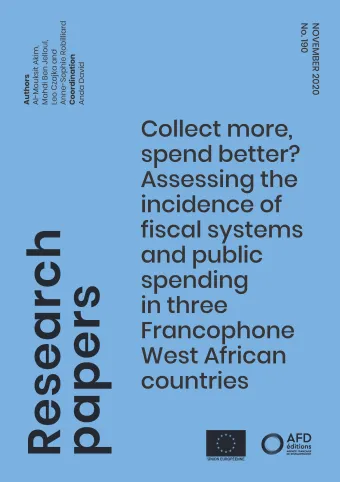Share the page
Collect more, spend better? Assessing the incidence of fiscal systems and public spending in three Francophone West African countries
Published on

The objective of this study is to analyse and compare the incidence of fiscal systems of three western African countries: Côte d’Ivoire, Mali and Senegal. The analysis relies on different data and tools: (1) individual and household level data from three recent household surveys (EMOP2011, ESPS 2011, ENV 2014), (2) a detailed description of the three fiscal systems, (4) the CEQ conceptual framework, and (4) the OpenFisca platform, an open source tax-benefit calculator parameterized to simulate the fiscal systems of each country. Results indicate that fiscal systems in Mali, Senegal and Côte d’Ivoire have a slightly progressive impact on inequality. This stems from the combination of slightly progressive direct taxes, regressive indirect taxes, and progressive public spending on education. Various features are likely to explain these results: (1) Direct taxes are paid by a very small fraction of the population; (2) Indirect taxes such as VAT and import tariffs affect poorest households more since they consume a higher share of their income; (3) Primary schooling rates are high and poorer households tend to have more children. These results point to some recommendations to enhance the redistributive power of existing systems: expand the reach of direct PIT; reexamine the incidence of exemptions to VAT and import taxes; increase transparency on public spending to maintain Willingness-to-Pay taxes at high levels; improve household survey data quality and promote access to fiscal data.
Useful Information
-
Authors
-
Al-Mouksit AKIM, Mahdi Ben JELLOUL, Leo CZAJKA, Anne-Sophie ROBILLIARD
-
Coordinators
-
Edition
-
190
-
Number of pages
-
62
-
ISSN
-
2492 - 2846
-
Collection
-
Research Papers
